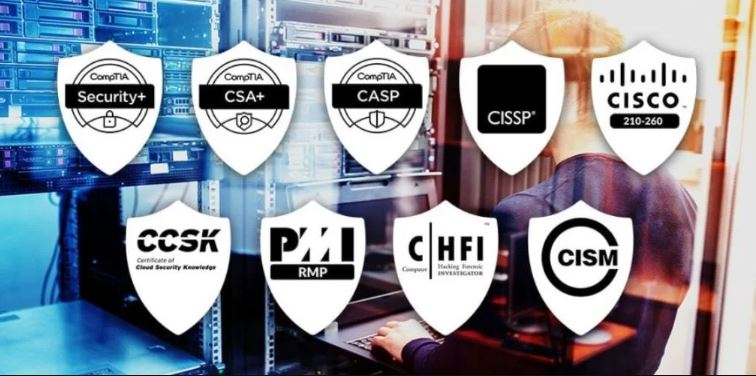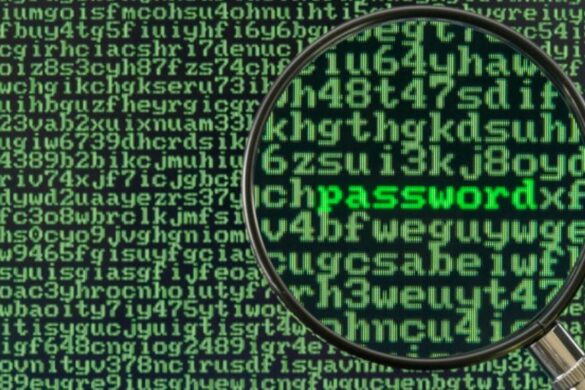Cybersecurity has quickly become one of the most in-demand fields worldwide. With the rise of digital technologies, cloud computing, artificial intelligence, and online financial systems, protecting sensitive information has become a top priority for businesses, governments, and individuals alike. The demand for cybersecurity professionals continues to grow, creating countless opportunities for beginners to start a rewarding and high-paying career.
But the big question is: how do you start a career in cybersecurity if you’re new to the field?
This comprehensive guide will walk you through everything you need to know—from the essential skills and educational paths, to certifications, practical experience, and career roadmaps.
What is Cybersecurity?
Cybersecurity refers to the practice of protecting systems, networks, programs, and data from cyber threats such as hacking, malware, phishing, ransomware, and insider attacks. It covers a wide range of areas including:
-
Network security: Protecting computer networks from unauthorized access.
-
Application security: Ensuring software and apps are built securely.
-
Cloud security: Safeguarding cloud-hosted environments and data.
-
Information security: Protecting sensitive business or personal information.
-
Incident response: Detecting and mitigating cyberattacks in real time.
Understanding these areas is the first step toward starting a cybersecurity career.
Why Choose a Career in Cybersecurity?
High Demand for Professionals
According to industry reports, there are millions of unfilled cybersecurity positions worldwide. Organizations are struggling to find skilled professionals, making this field one of the most lucrative career choices.
Competitive Salaries
Cybersecurity specialists earn above-average salaries. Entry-level positions often start at $60,000–$80,000 per year, while experienced professionals such as penetration testers or security consultants can earn over $120,000 annually.
Continuous Learning and Growth
Cybersecurity is constantly evolving. Every new technology brings new challenges, meaning you’ll never stop learning. This makes the career exciting and future-proof.
Diverse Career Paths
From penetration testing to digital forensics, cloud security, and compliance auditing, the options are endless. You can choose a role that matches your interests and strengths.
Step 1: Understand the Cybersecurity Career Landscape
Cybersecurity Roles for Beginners
-
Security Analyst – Monitors systems for suspicious activity and responds to threats.
-
IT Support Technician – Provides technical assistance and learns the basics of system administration.
-
Junior Penetration Tester – Assists in ethical hacking tasks.
-
Incident Response Specialist – Helps in identifying and responding to attacks.
Advanced Cybersecurity Roles
-
Penetration Tester (Ethical Hacker) – Tests systems for vulnerabilities.
-
Security Engineer – Designs secure systems and networks.
-
Cybersecurity Consultant – Advises companies on best practices.
-
Chief Information Security Officer (CISO) – Leads an organization’s security strategy.
Step 2: Build a Strong Educational Foundation
Do You Need a Degree?
While a degree in computer science, information technology, or cybersecurity can be helpful, it is not always required. Many professionals start without a degree and instead rely on certifications and hands-on experience.
Alternatives to Traditional Education
-
Online cybersecurity bootcamps
-
Free resources and MOOCs (Coursera, Udemy, edX)
-
YouTube tutorials and community forums
Step 3: Learn the Core Skills
Technical Skills to Focus On
-
Networking Basics – TCP/IP, DNS, firewalls, VPNs
-
Operating Systems – Windows, Linux, macOS
-
Programming Languages – Python, C/C++, Java, Bash scripting
-
Cloud Platforms – AWS, Azure, Google Cloud
-
Cryptography Basics – Encryption, hashing, digital certificates
Soft Skills That Matter
-
Problem-solving and critical thinking
-
Communication and teamwork
-
Attention to detail
-
Adaptability and continuous learning mindset
Step 4: Earn Cybersecurity Certifications
Entry-Level Certifications
-
CompTIA Security+ – Great for beginners, covers fundamental security concepts.
-
CompTIA Network+ – Builds a strong foundation in networking.
-
Certified Ethical Hacker (CEH) – Focuses on penetration testing techniques.
Intermediate Certifications
-
Cisco Certified CyberOps Associate – Practical for incident response.
-
GIAC Security Essentials (GSEC) – Covers practical skills for security professionals.
Advanced Certifications
-
Certified Information Systems Security Professional (CISSP) – Recognized globally, for senior professionals.
-
Certified Cloud Security Professional (CCSP) – Focused on cloud environments.
-
Offensive Security Certified Professional (OSCP) – One of the toughest, for penetration testers.

Step 5: Gain Practical Experience
Build a Home Lab
Set up your own cybersecurity lab with virtual machines to practice penetration testing, malware analysis, and incident response.
Try Capture the Flag (CTF) Challenges
Websites like HackTheBox and TryHackMe offer real-world hacking simulations where you can test and build your skills.
Contribute to Open-Source Security Projects
This improves your portfolio and connects you with the cybersecurity community.
Internships and Entry-Level Jobs
Apply for IT support, junior analyst, or security intern roles. These positions give you the practical experience employers are looking for.
Step 6: Create a Career Roadmap
Short-Term (0–2 Years)
-
Learn networking, operating systems, and basic security concepts.
-
Get an entry-level certification like CompTIA Security+.
-
Apply for internships or IT support roles.
Mid-Term (2–5 Years)
-
Gain real-world experience in cybersecurity operations.
-
Specialize in an area such as penetration testing, cloud security, or incident response.
-
Earn intermediate/advanced certifications (CEH, CISSP, OSCP).
Long-Term (5+ Years)
-
Take on leadership roles such as Security Engineer, Consultant, or CISO.
-
Build a reputation by publishing research, speaking at conferences, or mentoring others.
Step 7: Build Your Professional Network
Join Cybersecurity Communities
-
Reddit forums (r/cybersecurity)
-
LinkedIn groups
-
Local cybersecurity meetups
Attend Conferences
Events like Black Hat, DEF CON, and RSA Conference are great for learning and networking.
Leverage Social Media
Follow industry experts, share your knowledge, and grow your personal brand.
Step 8: Stay Updated with the Latest Trends
Cybersecurity evolves rapidly. Stay ahead by:
-
Following security blogs (Krebs on Security, DarkReading)
-
Subscribing to threat intelligence reports
-
Learning new tools and techniques regularly
Step 9: Apply for Jobs and Build Your Resume
Crafting a Cybersecurity Resume
Highlight:
-
Certifications
-
Hands-on projects (labs, CTF challenges, GitHub repositories)
-
Internships and IT experience
Preparing for Interviews
Be ready to answer both technical and scenario-based questions. Demonstrating problem-solving skills is as important as technical knowledge.
Step 10: Never Stop Learning
Cybersecurity is not a “learn once and done” career. Continuous learning is mandatory to stay relevant and advance.
Conclusion
Starting a career in cybersecurity may seem overwhelming, but with the right approach, it’s absolutely achievable. Whether you choose formal education, certifications, or self-study, the key is to combine theoretical knowledge with practical experience. Build your skills step by step, stay curious, and never stop learning.
The world needs more cybersecurity professionals, and this could be your chance to be part of the digital defense frontier.





